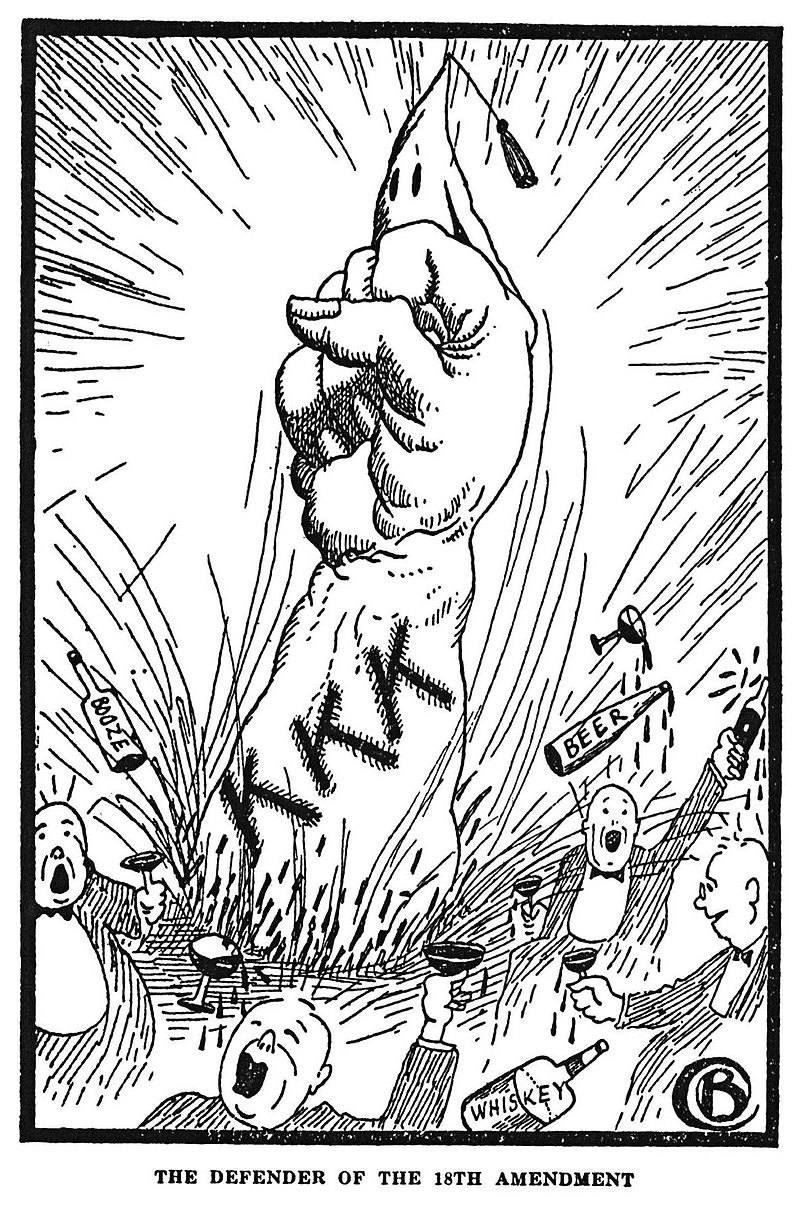Historical
See other Historical Articles
Title: HIT & RUN BLOG 3 Lessons from Prohibition, Which Started Today in 1919
Source:
Reason
URL Source: https://reason.com/blog/2018/01/16/ ... from-prohibition-which-started
Published: Jan 16, 2018
Author: Nick Gillespie
Post Date: 2018-01-17 05:35:22 by Deckard
Keywords: None
Views: 224
On January 16, 1919, the 18th Amendment became law when five state legislatures (North Carolina, Utah, Nebraska, Missouri, and Wyoming) passed it. In the end, 46 of 48 states passed it, with only Connecticut and Rhode Island voting it down. The text of the amendment set into motion what became known as Prohibition: Section 1. After one year from the ratification of this article the manufacture, sale, or transportation of intoxicating liquors within, the importation thereof into, or the exportation thereof from the United States and all the territory subject to the jurisdiction thereof for beverage purposes is hereby prohibited. Section 2. The Congress and the several States shall have concurrent power to enforce this article by appropriate legislation. Section 3. This article shall be inoperative unless it shall have been ratified as an amendment to the Constitution by the legislatures of the several States, as provided in the Constitution, within seven years from the date of the submission hereof to the States by the Congress. Here we are, almost 100 years later and marijuana legalization is proceeding apace, despite the efforts of the current attorney general. What lessons might we draw from Prohibition, which was repealed in 1933 with the passage of the 21st Amendment? They are many, for sure, but here are three quick takeaways worth pondering: Prohibition was enforced very differently, depending on who you were and where you lived In today's America, of course, beer, wine, and alcohol are legal, and even recreational marijuana is cool in eight states and the District of Columbia. Legalization efforts have wisely focused on many of the same arguments that brought down Prohibition. Currently, 61 percent of Americans think pot should be treated the same as alcohol. That's up from just 31 percent in 2000, suggesting escape velocity has been reached. All this makes sense, as nearly half of all Americans have tried an illegal drug and while pot smoking among younger people is nowhere near its high point in the late 1970s and early 1980s, it's less controversial than it ever has been. As important, since 1969 (when just 12 percent of us thought pot should be legal), virtually all of us use a wide variety of legal, illegal, and prescription drugs to manage our moods, productivity, and pain in ways that were unimaginable 40 years ago. Which bodes well for legalization of other currently "illicit" (the government's preferred term for pharmaceuticals it arbitrarily makes illegal) drugs. But even if parts of the drug war are ending, there is still no real peace treaty that's been signed, much less a reparations plan for all those people whose lives were sacrificed in the pursuit of keeping consenting adults from doing business with each other. Until all that happens, we will do well to recall Prohibition as a dark chapter in our history and draw its lessons out into contemporary debates. 

Post Comment Private Reply Ignore Thread
[Home] [Headlines] [Latest Articles] [Latest Comments] [Post] [Mail] [Sign-in] [Setup] [Help] [Register]
